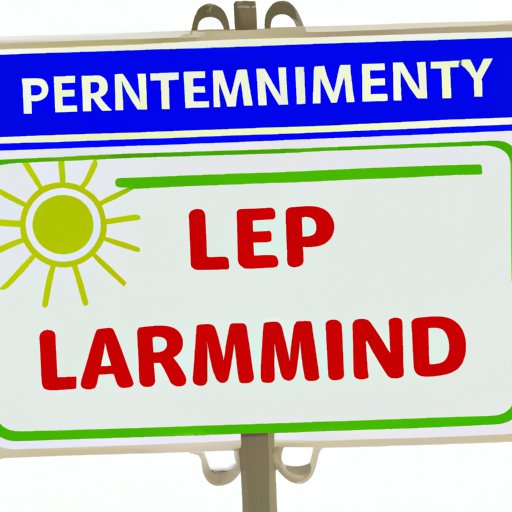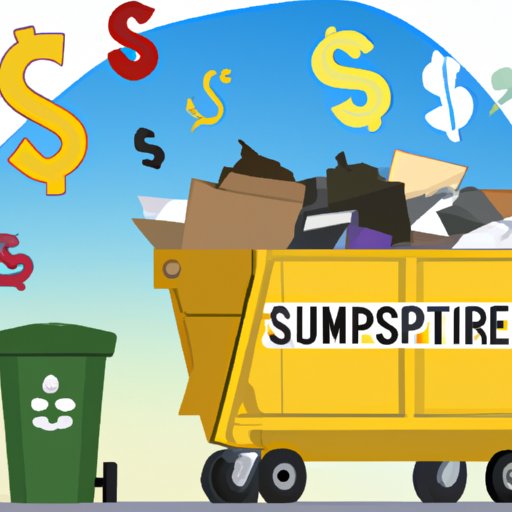Introduction
Starting a dumpster business can be a lucrative venture. There is always a need for reliable waste removal services, and many people are turning to smaller businesses to provide this service. If you are considering starting a dumpster business, there are several things you should consider before taking the plunge.
Overview of Dumpster Business
A dumpster business involves renting out dumpsters for customers to use for disposing of their excess waste. Customers may include residential homeowners, construction sites, factories, and other businesses that generate large amounts of waste. The business typically involves delivering the dumpsters to the customer’s location and picking them up when they are full. The dumpster business then hauls the dumpsters to an appropriate disposal site.
Benefits of Starting a Dumpster Business
There are many benefits to starting a dumpster business. For starters, it is relatively low-cost to get started and can be scaled up or down depending on your needs. Additionally, it can be done with minimal overhead and staff, meaning that you can keep your operating costs low. Furthermore, the demand for dumpster rental services is ever-increasing as more people become aware of the importance of proper waste disposal.
Licensing and Permits
Before you can begin operating a dumpster business, there are several permits and licenses that must be obtained. Depending on where you plan to operate, these licenses and permits may vary. Generally, you will need a business license, a waste hauling permit, and a vehicle registration. You may also need additional permits to operate in certain areas.

Where to Obtain Licensing and Permits
The necessary licensing and permits for your dumpster business can typically be obtained from your local government offices. It is important to check with your local government to see what permits and licenses are required in your area. Additionally, you may need to obtain insurance to cover any potential liability associated with your dumpster business.
Equipment Needed
In order to operate a successful dumpster business, you will need to invest in the necessary equipment. This includes dumpsters in various sizes, a truck or trailer to transport the dumpsters, and any other necessary tools and materials. It is important to research the types of dumpsters that are available so that you can decide which ones will best suit your needs.
Cost of Equipment
The cost of the equipment needed for your dumpster business will depend on several factors, including the type of dumpsters you choose and the quality of the equipment. Generally, purchasing used equipment is the most cost-effective option. However, if you plan to rent out dumpsters frequently, it may be worth investing in higher quality equipment to ensure it lasts longer.
Marketing Your Business
Once you have the necessary licensing and permits, it is time to start marketing your business. There are both online and offline marketing strategies that can be used to reach potential customers. Online marketing strategies such as advertising on social media, search engine optimization, and email campaigns can be used to reach a wider audience. Offline marketing strategies such as direct mail campaigns, print advertising, and networking events can also be effective.
Financial Considerations
When starting a dumpster business, it is important to consider the financial implications. Start-up costs can include the purchase or rental of equipment, obtaining necessary licensing and permits, and any advertising or marketing expenses. Ongoing costs may include fuel, insurance, maintenance, and wages for employees. Potential profits will depend on the number of customers you acquire and the rates you charge for dumpster rental services.
Conclusion
Starting a dumpster business can be a great way to make money while helping others dispose of their waste responsibly. There are many benefits to starting a dumpster business, including low start-up costs, minimal overhead and staff, and a growing demand for dumpster rental services. Before beginning, it is important to obtain the necessary permits and licenses and to invest in the right equipment. Additionally, a successful marketing strategy is essential for ensuring the success of your business. Finally, it is important to consider the financial implications of starting a dumpster business, including start-up and ongoing costs and potential profits.
(Note: Is this article not meeting your expectations? Do you have knowledge or insights to share? Unlock new opportunities and expand your reach by joining our authors team. Click Registration to join us and share your expertise with our readers.)
